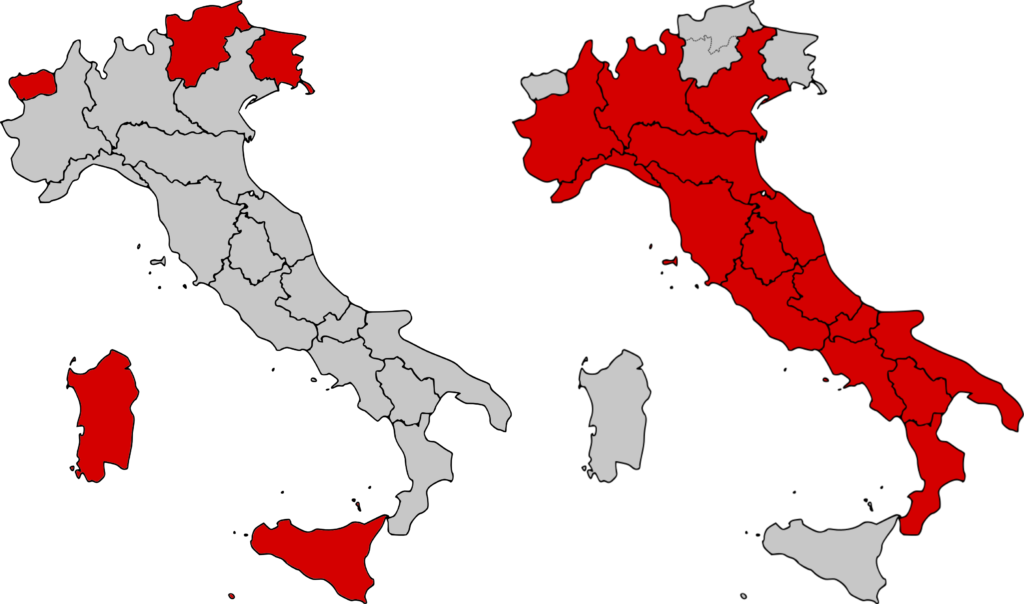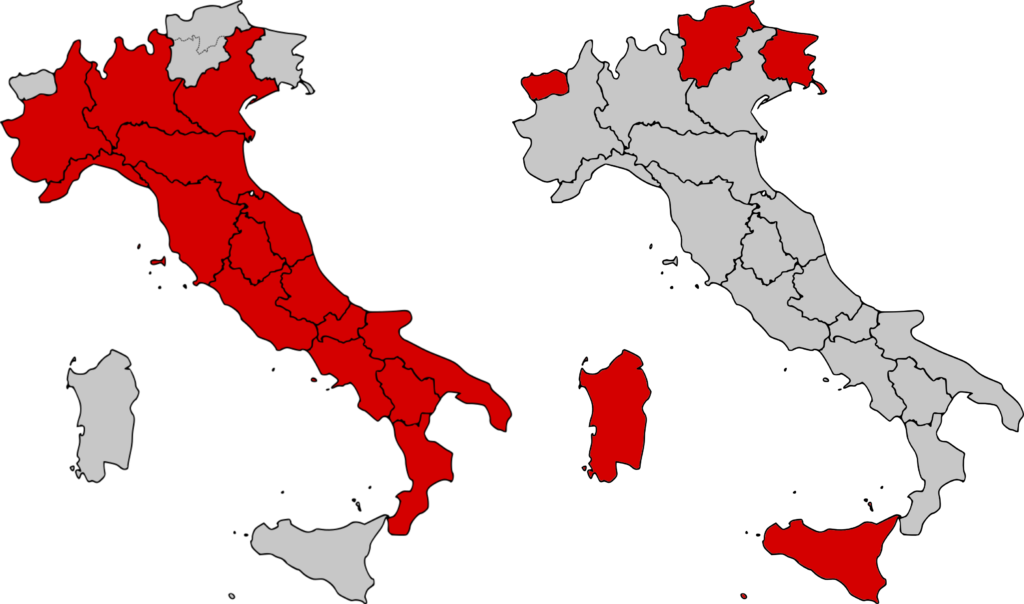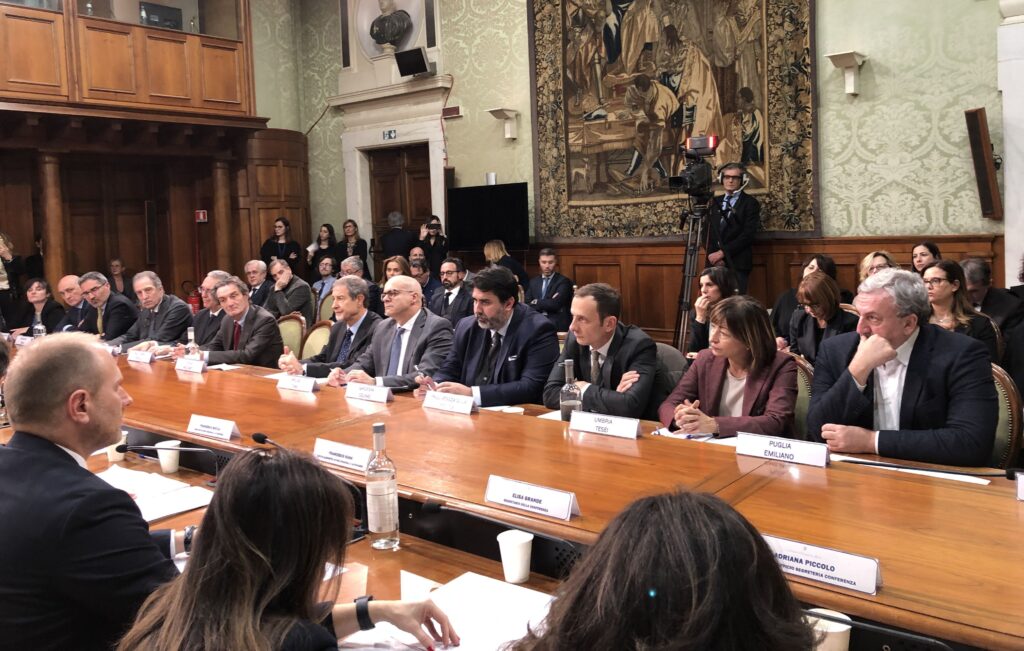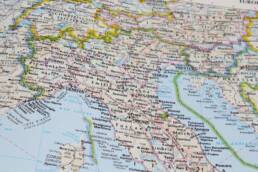The withdrawal of the DDL “Autonomy” disrespect to Italy that works
Combined with a non-referendable Budget Law, diversified regionalism would have entrusted Emilia-Romagna, Lombardy and Veneto with the care of the Recovery Plan
Once again, Italian politics shows the worst face of itself; once again, the dark side of the (was) Belpaese takes the field against the best and most vital energies distributed on the national territory, against the productive classes welcomed by the Po Valley; , in short, against the most efficient, virtuous and organized territories.
The democratic process begun in October 2017 by the Regions Emilia-Romagna, Lombardy and Veneto (the first with the vote of the Legislative Assembly, the second and third with consultative referendums that resulted in enthusiastic yeses in favor of differentiated regionalism, greater autonomy…) suffers a setback that may not be recoverable in the short term.
The Framework Law has been postponed, without a… because
The project of the Framework Law intended to set the benchmarks for asymmetric regionalism, defined at the end of the work of two parliamentary commissions and the long process of negotiation between Bologna, Milan and Venice and the Presidency of the Council of Ministers during 2018 and 2019, embodied first by Paolo Gentiloni and then by Giuseppe Conte, was in fact removed from the Budget Law arrived at the end of December in Montecitorio and Palazzo Madama, without a single free voice of dissent raised publicly against such a “havoc”.
Preliminary agreement between the Government and the Emilia-Romagna Region (in Italian)
Preliminary agreement between the Government and the Lombardy Region (in Italian)
Preliminary agreement between the Government and the Veneto Region (in Italian)
On the contrary, the “reasons of the Regions”, as we could define them, the impulses to do their own thing in the respect of the principles affirmed by the Title V of the Constitution of the Republic, are under the attack of a “reactionary” network, allergic to any form of progress, which involves civil servants, extreme left and Southern organizations.
On December 18, although hindered by anti-corruption measures, several citizens demonstrated throughout Italy against the yearnings for freedom of people from Emilia-Romagna, Lombardy and Veneto, performing in 25 cities in front of the Prefectures or the headquarters of the Regional Administrations. A self-styled “National Committee for the withdrawal of any differentiated autonomy, the unity of the Republic and the removal of inequalities” took to the field to challenge a normal democratic process, which has lasted for five years in the wake of constitutional rights and deserves to see an end.

Sick welfarism or healthy equalization?
The idea of this little group, disproved by a century and a half of chronic backwardness of Southern Italy, is that a serious implementation of regionalism should first impose the allocation of an adequate multi-year fund for equalization of the gap between the territories and only then could start a serious reflection on the uniform levels of social services throughout the national territory, through “sharing and participation”.
Various voices from the cultural and academic world have risen speciously against “a process of balkanization” of the country, absurdly claiming to warn citizens against the “subversive danger inherent in the autonomist drives triggered by the Draft Agreements signed on February 28, 2018 by Lombardy, Veneto and Emilia Romagna and the Executive of Paolo Gentiloni”, “dangerous” (?) European Commissioner for the Economy.
The Europe of small states and a barely sketched federalism….
In the Nation in which one must doubt the validity of the outcome of the plebiscites that between 1859 and 1866 conferred legitimacy to the Italian unification, especially in the Duchies of Parma and Modena, in the Veneto, in the northernmost Legations of the Papal State and in the Grand Duchy of Tuscany, It is therefore not possible to “seek a happiness”, to quote the often evoked and admired Constitution of the United States of America, which passes through the conferral of an extended autonomy on territories of the Peninsula that for centuries were happily independent, and not by chance. ..
North, 100 billion euros of fiscal residue
It goes without saying that every country has the material and moral duty to launch the freshest, best-trained and most effective troops to the attack, especially in a highly competitive global context: in the case of Italy, the regions not only capable of a remarkable Gross Domestic Product, but which every year allocate respectively 55, 18 and 15 billion euros to all the others through the fiscal residue: an expropriation of the enterprises and the workers of the quadrilateral that goes from Rimini to Varese and from Piacenza to Belluno, but to which they could well add Valle d’Aosta, Piemonte, Liguria, Trentino-Alto Adige/Südtirol and Friuli-Venezia Giulia.
That Italian Confederation born and buried in Zurich
In a dramatic year in which the so-called “mainstream” press has competed to exalt Palazzo Chigi and ridicule the northern territories and the “governors” Stefano Bonaccini, Attilio Fontana and Luca Zaia, the memory could not help but run to the bankruptcy almost under silence of the municipality of Catania in December 2018: a scandal triggered by a hole, ascertained by the Court of Auditors, of at least 1.6 billion euros and for which the 2. 500 (!) municipal employees were incapable of collecting more than 6 percent of the fines in 2016 and more than 0.45 of the backlog of evasion in 2015.
Italy, requested “certain times for differentiated regionalism”
Italy, “On diversified autonomy, the government is ready.”
The Framework Law, circulated in two drafts at the end of 2019 and feared to be immediately anesthetized by the pandemic, was vainly announced in the NADEF 2020 (“Provisions for the implementation of the differentiated autonomy referred to in Article 116, third paragraph, Constitution”) or “Update Note to the DEF”: a bill linked to the financial maneuver that could have already fully and definitively devolved health to the legislative power of the Regions, in concrete as the first matter of attribution to local authorities of differentiated regionalism.

The danger of the referendum is to be defused
It would have been a regulation of ordinary rank, but connected to the Budget Law; as such, it would have been modifiable by the parliamentary majorities, but removed from the will of abrogation through popular referendum, without prejudice to the Draft Agreements already signed by Bologna, Milan and Venice with the Council of Ministers during negotiations lasted five years.
Italy, because differentiated autonomy “is” the Constitution
Italy, the legitimate implementation of differentiated autonomy
This circumstance would have “armored” the regionalism of Emilia-Romagna, Lombardy and Veneto, preventing the collection of 500,000 signatures or the vote of five Regional Councils from calling everything into question, activating the referendum mechanism of abrogation foreseen by article 75 of the Constitution.
Being a one-off financing, the Recovery Plan would have allowed the three Regions in question to manage the resources themselves, paying due homage to the most developed, modern and “European” territories of the country, the Italian locomotives. But that is not all.
Direct relations between Regions, EU and other Nations
Once the emergency of COVID19 ceased to exist, Emilia-Romagna, Lombardy and Veneto would have been able to take on 23 specific competencies involving the economic, legislative and social dimension (perhaps not the school, due to the reluctance of the Democratic Party and the 5 Star Movement in the person of Giuseppe Conte), but above all triggered, at last, direct relations between Bologna, Milan and Venice and the European Union and other international subjects, just as happens to the Länder of a first class Germany…







